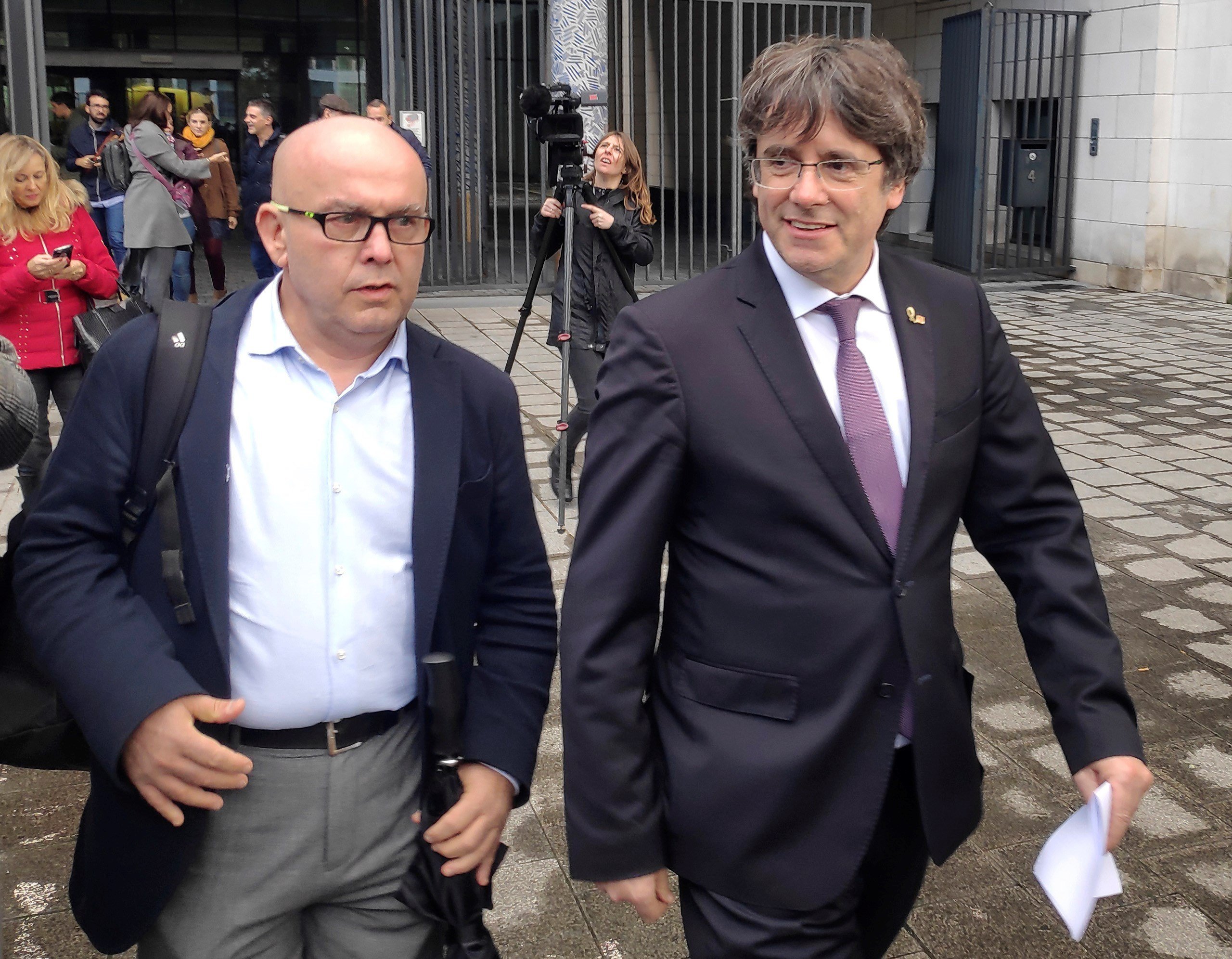In a strongly-argued submission to Spain's National Audience court, lawyer Gonzalo Boye has appealed the decision to freeze his assets to pay civil compensation of 200 million pesetas (about 1.2 million euros) which was imposed on him in 1996 for his involvement in the kidnapping of businessman Emiliano Revilla. In his appeal, the Chilean-born lawyer denounces that the embargo is an ad hominem decision which breaks all the court's precedents on civil liability, and was enacted by altering the composition of the court and violating the criteria of impartiality. He considers the court's action to be a "political persecution" in response to his role as defence lawyer of exiled Catalan president Carles Puigdemont and other Catalan politicians in exile, as well as current Catalan president Quim Torra.
Given this situation, and in case his appeal is rejected, Boye intends to propose several preliminary questions to the European Court of Justice, with regard to the right to an independent and impartial court.
The appeal states that up till now all the criteria applied by the National Audience's criminal chamber in cases such as his supported the view that civil liability had expired, due to a statute of time limitations on the ability to enforce it. However, in Boye's case, it is argued that a procedure initiated in 2008 to find out the extent of his assets stopped the clock on this time limitation.
To refute this argument, the submission quotes numerous legal precedents in which the same procedure did not stop the expiry of the offence, including a September 2018 argument which was accepted by, among others, Concepción Espejel and Eduardo Gutiérrez, the judges who have now ruled in the opposite direction.
He claims that in order to achieve court support for the action against him, the composition of the court was altered, increasing it from three to five members, thus altering the majorities ad hoc, when there was no legal provision for this change, with the reporting judge to whom the case was initially assigned being removed from it.
Boye considers that the court took an ad hominem decision, that is, a personal "persecution" due to the cases on which he is acting, among them those of Carles Puigdemont and other exiled Catalan politicians, and Quim Torra. For this reason, he asserts that it is no accident that the file has been reopened now, 32 years after the events took place and 24 years after the sentence was given.
He argues that the case was reactivated at the moment that he achieved two notable successes in his cases: the rejection of the European arrest warrant against Carles Puidgemont, and the rejection of the extradition claim presented against the exiled president in Germany.
The goal, says Boye, is to prevent him from working on his cases, requiring him to devote his efforts to defending himself, as well as destabilizing and discrediting him as much as possible, including through the publication of personal, family and economic data.
On this point, the Chilean-born lawyer recalls that he has only been bullied in this way during his career when he has taken on cases with political connotations that upset far-right sectors, such as the defence of victims of the 2004 Madrid terrorist bombings, and his current work for pro-independence politicians.
He emphasizes that there are no other cases in which the expiry of civil liability has been overcome by enlarging the number of judges deciding on the case, and declares that he has therefore been deprived of his right to a judge predetermined under the law.
According to Boye's submission, the decision creates great legal uncertainty, ignoring the doctrine of legal predictability which judges are obliged to respect. The appeal, in addition to pointing to a persecution of a political nature and a lack of impartiality, speaks of the "animosity" from the presiding judge of the court (who was recused by Boye from the Bárcenas case relating to Popular Party corruption, due to the judge's own links to the PP), and also the animosity of the judge who in the end became the reporting judge of the case (who had also been recused by the lawyer in another case).
Gonzalo Boye's text also hypothesizes that this civil case was opened without any involvement from Emiliano Revilla, the victim of the original kidnapping by ETA in which Boye was convicted of playing a role and imprisoned, although he has always denied any involvement. According to the lawyer's submission, Revilla has never undertaken a private prosecution nor has sought compensation from him in 32 years, and that the actions taken on his behalf are not accompanied by any notarial power of attorney, an element which the court has not attempted to verify. In consequence, Boye considers that the party calling for the sentence to be executed has no legitimate representation, and requests that it be ascertained whether there is really a will on the part of the plaintiff to activate this case.

